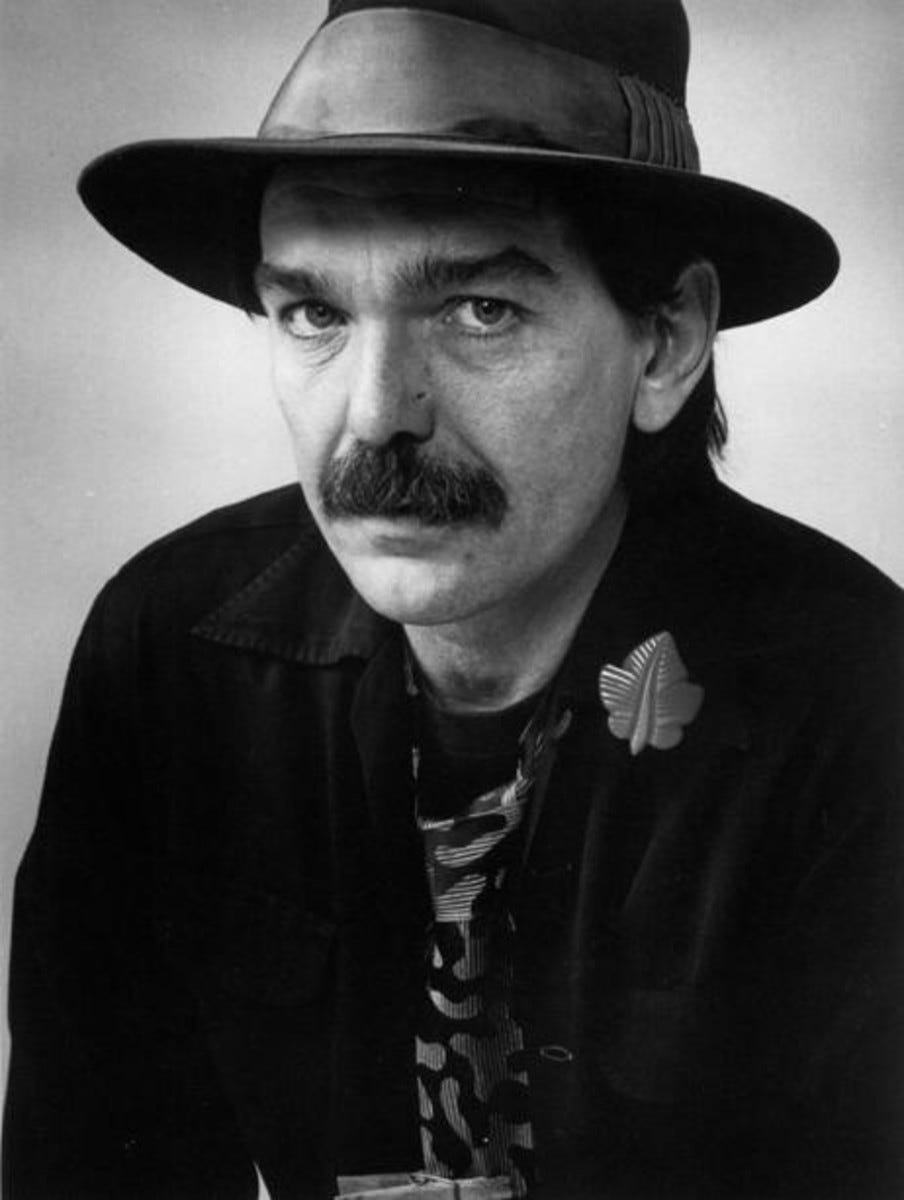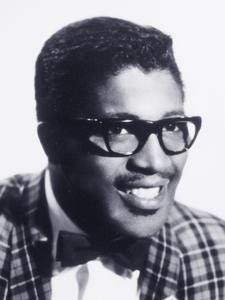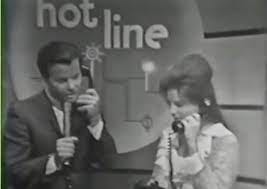On June 18, 1966, innocence and experience collided, and no one knew what hit them. The occasion was American Bandstand, and a crazy new group called Captain Beefheart and the Magic Band had a regional hit with a cover of Bo Diddley and Willie Dixon’s “Diddy Wah Diddy.” Diddy Wah Diddy is allegedly a place, but it’s really some kind of sexual utopia.
I got a girl down in Diddy Wah Diddy
Ain't a town an it ain't no city
She loves her man, just is a pity
Crazy about my girl in Diddy Wah Diddy
It is a pity, because the singer has a girl, and she loves him, but he doesn’t have the keys to the kingdom. We don’t know why, but that’s the given of the blues. There is something you can’t have, and there is no why when it comes to Diddy Wah Diddy. It is everything you want, you need, you must have, you are tantalized in its direction, and you just can’t get there. There is a castle and you can never find your way in.
“Diddy Wah Diddy” is a placeholder. I hail from a tribe that does not write the name of God, or G-d. YHWH or Yahweh is a mispronunciation of Jehova. “Hashem” just means “the name.” Adonai, which I recall from my bar mitzvah, is the substitute in the Torah: אֲדֹנָי. All of these words are a substitute for the thing that is beyond utterance. But then maybe many things are like that. You won’t get struck down for saying the insufficient word, but you also won’t do it justice. Bo Diddley released this beautiful record in 1956, a time when music was moving so far ahead of the mainstream, it still hasn’t really caught up. It is the year of breakthroughs for Miles, for Sonny, for Duke, Monk, and, for the teenagers, peak Elvis, Chuck Berry, Buddy Holly, Little Richard. Lucy and Desi slept in separate beds and could not even say the word “pregnant” (“expecting” was permitted). 94% of Americans were said to disapprove of interracial marriage—I wonder how that poll was conducted—and if you weren’t part of an underground emancipation, you were stuck with mainstream repression. Getting to “Diddy Wah Diddy” was a rough road.
So fast forward ten years, and one of the weirdest people to get in spitting distance to the pop charts, Don Van Vliet, suddenly had a record on American Bandstand. Some rock stars drop out of school. Don never went. He said he had half a day of kindergarten and then a lifetime of truancy. He was a sculpture prodigy, then the spirit of Howlin’ Wolf found its way into him. He was no mere imitator—plenty of those in rock and roll. He brought his own strangeness to the table, and, on Trout Mask Replica, would soon go full avant-garde and get into some of the most ambitious time signatures that ever came into rock and roll. They would be ambitious for any genre. And he didn’t even play an instrument. He just told The Magic Band what do do. He happened to grow up in the same neighborhood as Frank Zappa—who went to high school, but hung out with him—who produced Trout Mask Replica, and later collaborated with him on Bongo Fury, a favorite of Velvet Revolutionary and future Czech Republic president Vaclav Havel.
But Dick Clark did not see any of this coming on that June day in 1966. Dylan was getting booed everywhere he went for playing electric. John Lennon had just said that The Beatles were more popular than Jesus, and The Beatles had to dodge death threats and the Klan on their final tour, all of this after releasing the sublime Revolver. Say the wrong thing and you could get into a lot of trouble. The Bo Diddley “Diddy Wah Diddy” soars. It is exalted, an outrageous tenor reaching the heights, and Willie Dixon was the cowriter, the back door man. Diddy Wah Diddy sounds like a paradise the singer can’t reach, but he doesn’t sound bitter. He is spreading the good news. Maybe someone will get there somehow. Ten years on, and Hendrix is about to deepen the feedback forever. Don sounds demented, frustrated. He will never get to Diddy Wah Diddy. There is a lot of energy, but this is not a celebration. It is a cathartic lament for the frustrated, the cast out. Does anyone get to Diddy Wah Diddy? Yes, the gal. His gal. She’s there. How did she get there? Who else gets admission? Bo Diddley and Willie Dixon wrote it, Bo Diddley made it lovely. Beefheart, who was already writing his own songs, is already way, way down there. You don’t want to go there. But it is so intense, so persuasive, that it is undeniable.
Captain Beefheart does not show up for Dick Clark. He is a voice beamed in on the phone. The last record was Paul Revere and the Raiders. And now for something completely different. Clark takes the call then hands the phone to a seventeen year old girl named Cathy (or Kathy). Clark is there as sentry, and it’s just a phone call. How dangerous could this be? Cathy/Kathy is very curious, but she doesn’t know what to ask, and Clark will make sure that this doesn’t get too deep. She asks Captain Beefheart why he is becoming so popular. Not! But his answer keeps the promotion going. “I think it’s that sound. I think it’s coming through very strong.” And it does. It comes through stronger than anyone could handle. Cathy/Kathy is 17, looking, probably not by accident, like Ann Margaret in Bye, Bye, Birdie. The expression on her face changes when she hears what Captain Beefheart and the Magic Band did to “Diddy Wah Diddy.” Maybe she lived there and didn’t even know it. The camera moved on to the dancers, who looked like amateurs, including an adorable boy—what was he doing there? There were a few black couples, but no interracial dancers. They danced along with it, but without any shock of the new. Paul Revere and the Raiders might as well have still been playing.
Did “Diddy Wah Diddy” have a precursor? It did, indeed, it did. Blind Blake wrote and performed a different song with the same title back in 1929. He knew it was trouble, but he was still curious:
There's a great big mystery
And it sure is worrying me
This Diddie Wa Diddie, Mister Diddie Wa Diddie
I wish somebody would tell me what Diddie Wa Diddie means
That was nearly a century ago. Now AI claims they can remap the genius behind “Diddy Wah Diddy.” Sure, it can spit it out in a second, but it’s filled with errors. It’s kind of ridiculous. “Anyone,” said Laurie Anderson, “who thinks technology can solve their problems doesn’t understand technology or their problems.” Ask AI to come up with Diddy Wah Diddy and it will cough up something dumb. The guy has a gal who lives there, but how? We never know. Captain Beefheart never had a hit, but he has two videos at MOMA. One of them is called “Lick My Decals Off, Baby.” It sounds nasty, but it really meant: get rid of the labels. Peel them off, see what’s underneath, then keep digging. Who knows what you might find?
Ain't a town, ain't no city
Lord, how they love in Diddy Wah Diddy
Sounds nice. You may get to Diddy Wah Diddy at the appointed hour, but if you think that’s all it is, you don’t know Diddley. The Diddy Wah Diddy of Diddy Wah Diddy is still an undiscovered country. Beefheart and the charts were star- crossed. As his “Diddy Wah Diddy” was climbing a regional chart, a band called The Remains had yet another cover of “Diddy Wah Diddy.” (Remains, indeed.) People got confused, the charts were clogged, and Beefheart was and still is too weird for this world. He retired to the upper Mojave Desert, became ill with MS, and painted as long as he could. By the time he died in 2010, he was a recluse. (He certainly passed something on to Tom Waits and Kathleen Brennan.) Individual paintings sold in the high five figures—nothing to impress Warhol, but enough to get by. “A map without utopia isn’t even worth glancing at,” said Oscar Wilde. The same is true for Diddy Wah Diddy. The gal lives there, but just comes back to Earth for a visit. Someone will still search for it. Lick the decals off, baby. You never know.







I keep telling the kids to venture behind the decals. Nowadays, though, most of them refuse to venture past their cellphones. When the Captain returns, will they even recognize him?
Been there. It exists!